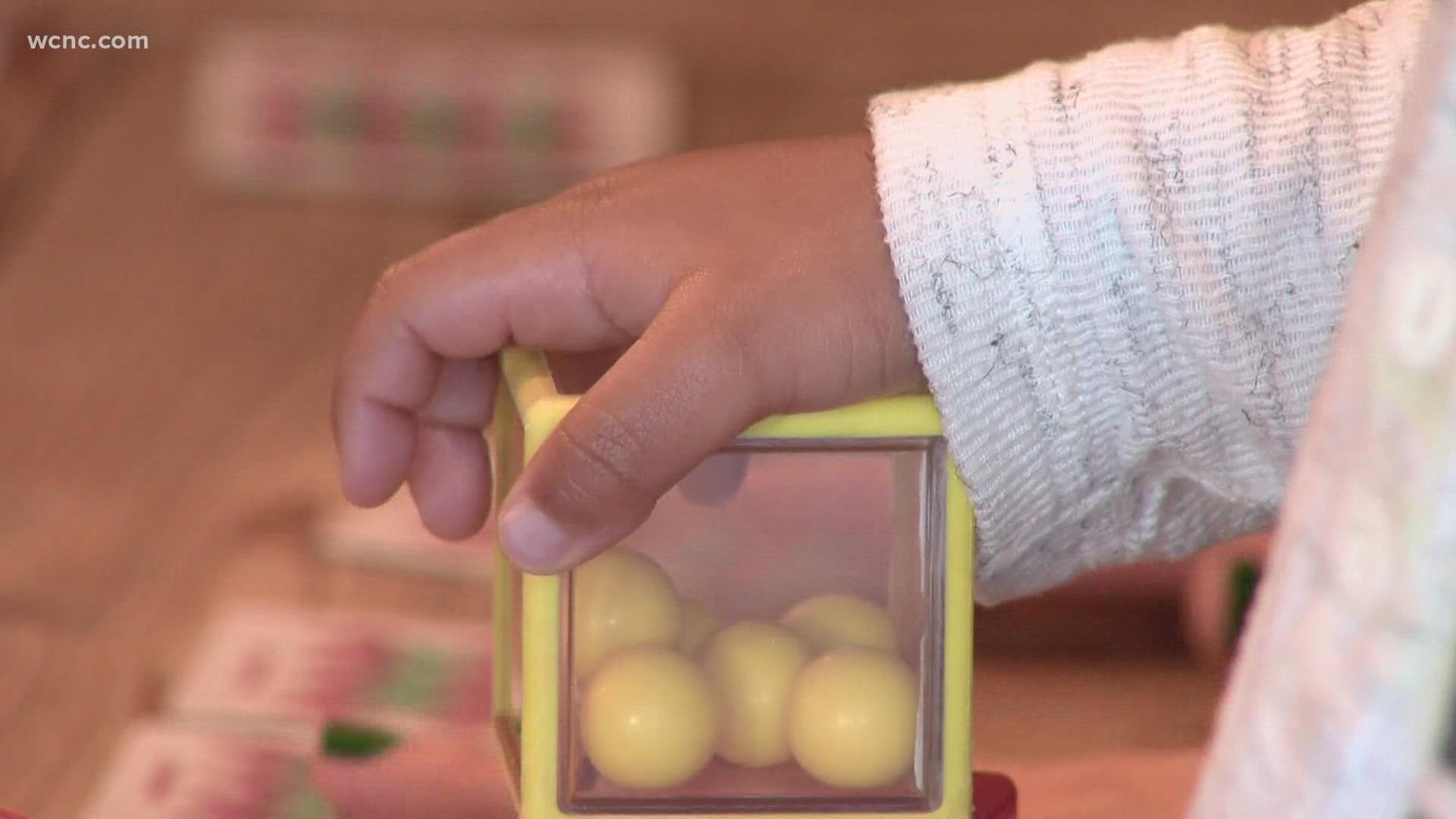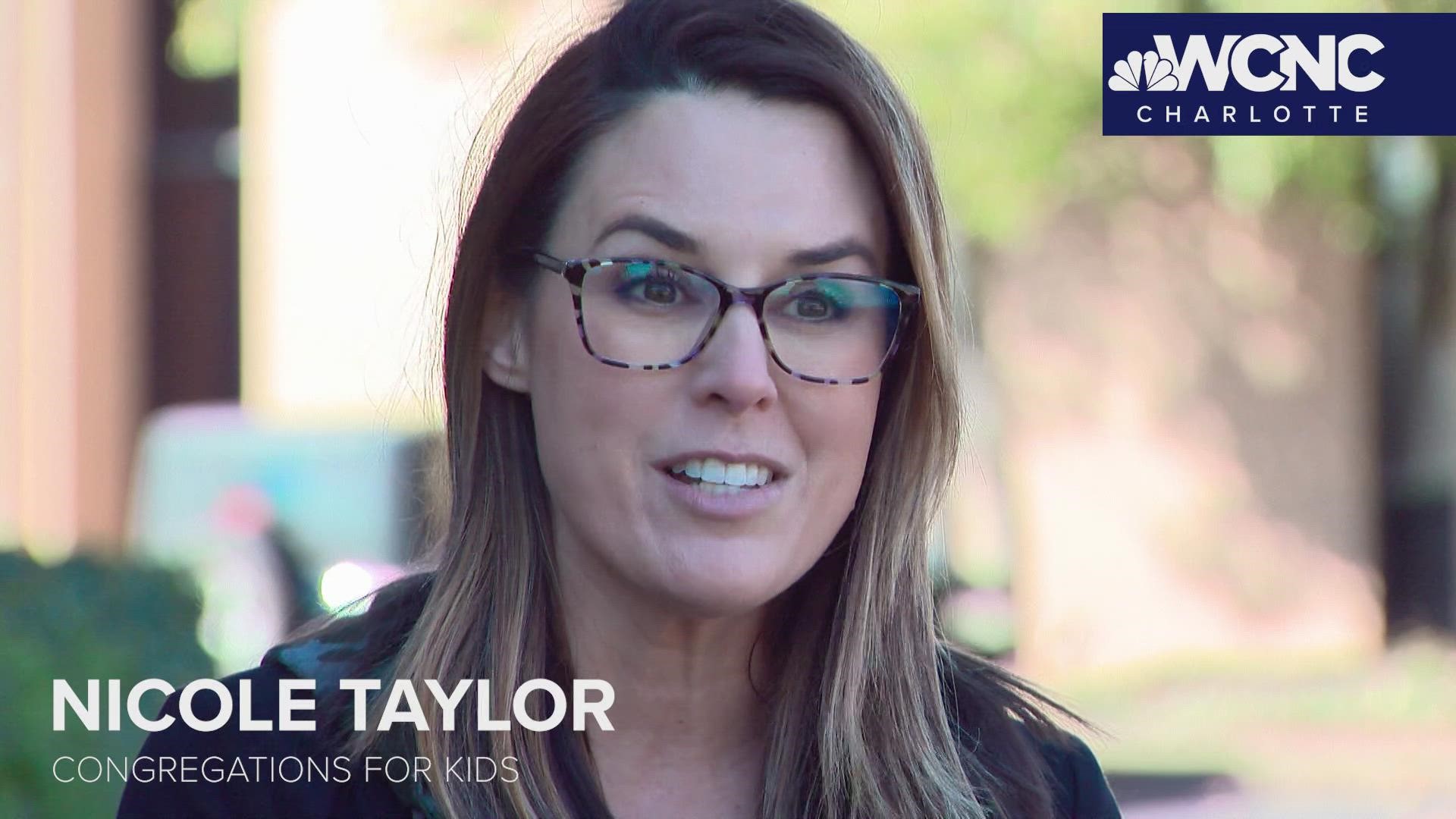Seeking Solutions | COVID-19 cripples struggling system, leaving foster kids and families in limbo
One foster family’s difficult journey amidst the pandemic is indicative of a larger trend in Charlotte and across the country.

The foster care system has historically faced challenges, but the COVID-19 pandemic meant foster kids and the families trying to help them were hit with an even more devastating blow.
Staffing shortages, court delays and more dilemmas caused kids to be kept in limbo longer than ever before. Foster care experts said some kids are even aging out of the system, ending up without families because of how backlogged the foster care system has been.
In the U.S., there are no orphanages. For children without a home, that’s where the foster care system comes in as a way to get those kids facing hardship into stable, loving homes.
A good way to get a snapshot of these setbacks is to take a look at one foster family currently caring for one little boy.
Meet The Reeds
Game night in the Reed household is lively: 8-year-old Riley, 5-year-old Zach and 6-month-old Jordan are all part of the festivities.
Alongside their already raucous bunch is a 2-year-old boy, who was just 3 days old when he arrived in their care. He came to live with The Reeds just days before COVID-19 lockdowns hit across the country.
EDITOR'S NOTE: WCNC Charlotte is not naming the boy in their foster care to respect his anonymity while his case is still pending.
“Everything has been crazy,” mom Josclyn Reed said. “We just had another court hearing canceled.”
Five of their six court dates in the last two years have been canceled which means where the 2-year-old boy goes next is still up in the air.
The goal of foster care is reunification, but that's not always possible. The boy could eventually be reunited with his mother and/or father, he could be sent to live with extended relatives or he may ultimately be available for adoption.
“The foster care world, as far as the courts go, it’s not a quick-moving world to begin with,” dad Paul Reed said. “So you sprinkle the pandemic on top of that, and our case has moved pretty slow.”
What kids face now
It’s a sentiment shared by Nicole Taylor, the executive director of Congregations for Kids (CFK). This nonprofit works with the North Carolina Department of Social Services (DSS), foster kids families.
“The system was broken before COVID, and COVID turned that all upside-down,” she admitted.
On average, Taylor estimated there are about 550 kids in the foster care system in Mecklenburg County. Typically, only 20 are cleared for adoption while another 40 will age out of the system before ever finding a permanent home.
Taylor noted the circumstances kids face now have grown direr in the last few years due to the pandemic.
During the throes of the pandemic when schools were closed, kids who were in dangerous situations were stuck at home. Teachers are usually the primary reporters to DSS when a child needs help, but at-home learning meant newly reported DSS cases plummeted in 2020.
“In Mecklenburg County, the number of cases reported dropped by 30%," Taylor said.
While that number has gone up recently with students back in classrooms, the cases are more extreme now.
Another factor in the system that can slow down a child's case is how often they get assigned a new social worker.
According to Taylor, a child who has one dedicated social worker the entire time they stay in foster care has a 74% chance of finding a permanent home. But the moment a new social worker takes the case, that chance drops drastically to 17% because the new social worker has to get up to speed on everything involved in the case, which understandably takes time.
Finding permanency can look like many different things for the child: Reuniting with their biological family, living with a relative, moving in with a friend or coach or being adopted. For Taylor, permanency is key to ensure kids don’t age out of the system and end up on their own.
“There’s a young man I met last week who had 18 different social workers in his six years in foster care, and he aged out [and] never found permanency,” she said. “Think about when you have one person to advocate for you and that person keeps changing, and you have to keep telling your story.”
The Reeds know this all too well, and amidst the uncertainty, they just want what’s best for the boy they’ve come to love.
“You’re attached as soon as the kid spends the night at your house,” Paul Reed shared. “All you can do is love him and hope for the best. Whether he’s here with us two years or forever, we wouldn’t change it for the world.”
His wife Josclyn agrees, and noted their duty is to do what's best for any child that comes into their home, including their current foster son.
“Our job is to take care of him as best we can and support his family, and the rest of it is not in our control, so we try to just be OK with that and do what’s ours to do," Josclyn said.
How to help
Congregations for Kids’ mission is to help everyone involved in the foster care system, and Taylor said there are many ways people can help, from supporting caseworkers facing an overwhelming caseload to donating supplies for foster families, or even becoming a foster parent yourself. More details on how to help can be found on their website.
To support social workers through the Socialight program, visit their website.
To become a mentor for a child that could age out of the foster system, find out more here.
If you’d like to become a foster parent, here's more information on that process.
People can also help with the immediate tangible needs a foster child has by joining the CAREnow platform, which shows children’s stories and lists what they need the most to help make their living situation more stable. Click here to learn more.
Contact Michelle at mboudin@wcnc.com and follow her on Facebook, Twitter and Instagram.



